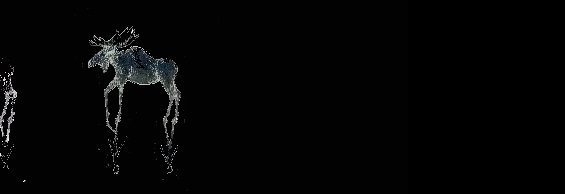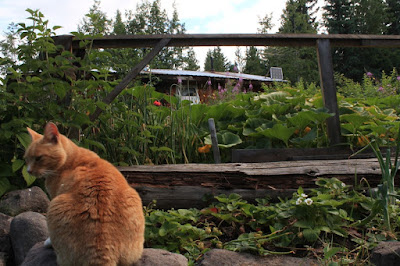The CDC has finally said what scientists have been screaming for months:
The coronavirus is overwhelmingly spread through the air, not via
surfaces.
Last week, the CDC acknowledged
what many of us have been saying for almost nine months about cleaning
surfaces to prevent transmission by touch of the coronavirus: It’s pure hygiene theater.
“Based
on available epidemiological data and studies of environmental
transmission factors,” the CDC concluded, “surface transmission is not
the main route by which SARS-CoV-2 spreads, and the risk is considered
to be low.” In other words: You can put away the bleach, cancel your
recurring Amazon subscription for disinfectant wipes, and stop punishing
every square inch of classroom floor, restaurant table, and train seat
with high-tech antimicrobial blasts. COVID-19 is airborne: It spreads
through tiny aerosolized droplets that linger in the air in unventilated
spaces. Touching stuff just doesn’t carry much risk, and more people
should say so, very loudly.
Like many, I spent the early months of the pandemic dunking my apples
and carrots in soap. That was before I read a persuasive essay in the
medical journal The Lancet by Emanuel Goldman, a microbiology professor at Rutgers New Jersey Medical School: “Exaggerated Risk of Transmission of COVID-19 by Fomites.” (In medical jargon, fomites
are objects and surfaces that can transmit an infectious pathogen.)
This opinion ran contrary to the conventional wisdom of the broader
scientific community, and Goldman told me that several journals rejected
his essay. But he was not alone in his quest. Writers such as my
colleague Zeynep Tufekci and researchers such as Jose-Luis Jimenez, an
aerosol scientist at the University of Colorado Boulder, were also
outspoken in their insistence that we needed to focus on ventilation
rather than surfaces, windows rather than Windex. They were rebuffed,
not only by loudmouths on Twitter and on TV, but by other scientists who clung stubbornly to an outdated view of viral spread.
These days, Goldman is extending his crusade against fomite fear from
COVID-19 to other diseases. The old story is that if you make contact
with a surface that a sick person touched, and then you touch your eyes
or lips, you’ll infect yourself. While Goldman acknowledges that many
diseases, especially bacterial diseases, spread easily from surfaces, he
now suspects that most respiratory viruses spread primarily through the
air, like SARS-CoV-2 does.
“For most respiratory viruses, the
evidence for fomite transmission looks pretty weak,” Goldman said. “With
the exception of RSV [respiratory syncytial virus], there are few other
respiratory viruses where fomite transmission has been conclusively
shown.” For example, rhinovirus, one of the most common viruses in the
world and the predominant cause of the common cold, is probably overwhelmingly spread via aerosols. The same may be true of influenza. Many experiments that suggest surface transmission of respiratory viruses stack the deck
by studying unrealistically large amounts of virus using
unrealistically ideal (cold, dry, and dark) conditions for their
survival. Based on our experience with SARS-CoV-2, these may not be
trustworthy studies.
Unlike the coronavirus, hygiene theater is very much alive on
surfaces across America. Transit authorities are still taking subway
cars offline to power-scrub their walls. Baseball parks are banning cash to protect fans from fiat germs. Schools throughout the country still require deep cleanings that sometimes shut down classes for hours or days. The Los Angeles Unified School District’s COVID-19 posters
still urge people to “clean high-touch surfaces frequently,” with no
mention of ventilation, air filters, or keeping windows open. Target is
still running ads on Hulu
bragging about how it calls in workers at 6 a.m. to mop and scrub for
several hours, for the comfort of its germophobic customers.
Read: The difference between feeling safe and being safe
Alas,
not even my own employer is immune to the scourge of hygiene theater.
In an update on our back-to-office policies yesterday, The Atlantic
instituted a “clean desk” protocol starting this summer that will
require “daily neatening and sanitation of workspaces.” Anybody who
works in journalism, or has ever seen a movie about journalism, knows
that journalists take to daily neatening the way lions take to
vegetarianism. Beyond being unnecessary, workplace-sanitation rules also
carry the risk of enforcing an awkward parent-teen relationship between
bosses and employees. In this business, “clean up this paragraph” is
hard enough on one’s self-esteem; “... and clean your filthy desk while
you’re at it” is not the sort of workplace banter that eases one’s
psychological transition back to the office.
Whenever
I’ve written about hygiene theater, some people have responded with the
same objection: “Hey, what’s the matter with washing our hands?” That’s
an easy one: Absolutely nothing. “Pandemic or no pandemic, you should
wash your hands, especially after you prepare food, go to the bathroom,”
or touch something yucky, Goldman said.
But hygiene theater
carries with it an immense opportunity cost. Too many institutions spend
scarce funds or sacrifice scarce resources to do microbial battle
against fomites that don’t pose a real threat. This is especially true
of cash-strapped urban-transit authorities and school districts that
have spent hundreds of millions of dollars on soap technology rather than their central task of transporting and teaching people.
Hygiene
theater also muddles the public-health message. If you tell people,
“This disease is on surfaces, on your clothes, on your hands, on your
face, and also in the air,” they will react in a scattered and scared
way. But if you tell people the truth—this virus doesn’t do very well on
surfaces, so you should focus on ventilation—they can protect
themselves against what matters.
At
the ideas level, the jealous protection of hygiene theater is an
example of a larger American crisis. “When the CDC doesn’t update its
fomite language for months while scientists are screaming about
aerosolized spread, it just seems like a case of the precautionary
principle taking over,” Goldman said. In his 2011 book, The Beginning of Infinity,
the physicist David Deutsch defined the precautionary principle as a
form of pessimism that “seeks to ward off disaster by avoiding
everything not known to be safe.” The opposite of the precautionary
principle is something like epistemic optimism: We don’t know enough, and we should always try to learn more.
That
point might sound airy and theoretical, but it makes direct contact
with America’s worst pandemic failures. Too many U.S. institutions
throughout the pandemic have shown little interest in the act of
learning while doing. They etched the conventional wisdoms of March 2020
into stone and clutched their stone-tablet commandments in the face of
any evidence that would disprove them. Liberal readers might readily point
to Republican governors who rejected masks and indoor restrictions even
as their states faced outbreaks. But the criticism also applies to
deep-blue areas. Los Angeles, for instance, closed its playgrounds and prohibited friends
from going on beach walks, long after researchers knew that the
coronavirus didn’t really spread outdoors. In the pandemic and beyond,
this might be the fundamental crisis of American institutions: They
specialize in the performance of bureaucratic competence rather than the act of actually being competent.
The
CDC’s announcement should be curtains for theatrical deep cleanings.
But until companies, transit authorities, retailers, and magazines
embrace the value of scientific discovery and the joy of learning new
things, the show, and the soap, will go on.
Derek Thompson is a staff writer at
The Atlantic, where he writes about economics, technology, and the media. He is the author of
Hit Makers and the host of the podcast
Crazy/Genius.



























